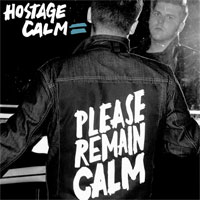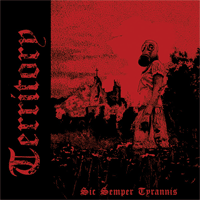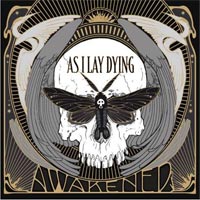JAWBREAKER / Timmy Hansell (IN HONOR.ORG)
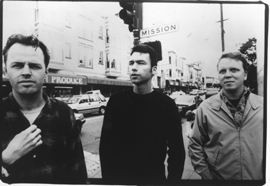 “So do you want to email Adam from JAWBREAKER?” went the email that landed in my inbox. Believe it or not, I had to think this over. I was pretty much oblivious to the fact that JAWBREAKER even existed until well after they ceased to be a band. Thus, my only knowledge of the band, outside of listening to their records was what I had gleamed vicariously through other publications, including the stellar interview that Punk Planet ran earlier this year. Nonetheless, this was not an opportunity that one turns down, and Elliot stacked up well where I fell short in figuring out what was the best way to approach this interview. JAWBREAKER contributed a live version of “Kiss the Bottle,” to Vagrant’s IN HONOR Cancer benefit compilation, and Adam Pfahler has been a huge booster of this release from the moment that he and Timmy began talking about a contribution. There’s a ton of great information below, and we are extremey proud to run this interview, which was conducted over the phone in September of 2004. – Jordan A. Baker “So do you want to email Adam from JAWBREAKER?” went the email that landed in my inbox. Believe it or not, I had to think this over. I was pretty much oblivious to the fact that JAWBREAKER even existed until well after they ceased to be a band. Thus, my only knowledge of the band, outside of listening to their records was what I had gleamed vicariously through other publications, including the stellar interview that Punk Planet ran earlier this year. Nonetheless, this was not an opportunity that one turns down, and Elliot stacked up well where I fell short in figuring out what was the best way to approach this interview. JAWBREAKER contributed a live version of “Kiss the Bottle,” to Vagrant’s IN HONOR Cancer benefit compilation, and Adam Pfahler has been a huge booster of this release from the moment that he and Timmy began talking about a contribution. There’s a ton of great information below, and we are extremey proud to run this interview, which was conducted over the phone in September of 2004. – Jordan A. Baker
Pastepunk: Why did you choose the live version of “Kiss The Bottle” to put on the In Honor compilation? Was there a particular meaning behind that track or did you just have it lying around? Adam: I have tons of live tapes from Gilman Street, from CBGB’s… from just various places we’ve played. They’re board tapes that our soundman recorded for us and they’re all just sitting in a box. When Timmy called he asked if we had anything lying around and I said absolutely. I said yes immediately and asked what song he’d like, and that’s what he asked for. Pastepunk: Has cancer affected anyone in your life? Why were you so eager to do In Honor? Adam: Sure, I think we’ve all known someone that has suffered or is living with a disease. You’d be hard pressed to find someone that’s not touched by it. Pastepunk: Are any of the bands on the In Honor comp getting royalties? Adam: No, we all waved our mechanical royalties. The seven cents you get for writing a song, everyone gave it up. It was nothing really, nothing to give up. Pastepunk: Even before I became a member of team Pastepunk we had put out “Broken Lamps and Hardcore Memories,” which gave some proceeds to Juvenile Diabetes Research and Parkinson’s Disease Association… Adam: That’s excellent, I’m a type one diabetic myself. Pastepunk: So with all these comps coming out…I don’t know if it’s a reflection of the music scene, but there are so many comps fighting for different causes and foundations. Do you see this as a growing part of the music scene? Are you approached with a lot of these? Adam: Not really. Just recently. We did the Rock Against Bush Volume Two. I think the more the merrier provided that someone is doing the accounting and the money is going where it’s suppose to. But I trust the guys at Fat and the guys at Vagrant, and I know the money is going to get where it’s suppose to. Pastepunk: How do you account for people still discovering JAWBREAKER and demanding albums like “Dear You” even to this day? Adam: They do a really good job of having our records out there. Revolver is a good solid distributor and they’ve been selling our records pretty consistently since they were put out. That has a lot to do with it, and I know we get name checked by a lot of the newer groups out there. Pastepunk: Yea, you could say that. Adam: That helps. I don’t know. It sounds like bullshit, but I’m pretty shocked and amazed and honored that there are younger people coming up that want to tune us in and check it out and make us a part of their stack. It’s pretty amazing. Ten years ago I never would have thought that we would be getting name checked and people would still be buying our t-shirts and records and we’d still be getting paychecks from the label or t-shirt company. I’m always stoked (laughs) Pastepunk: JAWBREAKER has really has become one of those bands you namedrop for credibility in your insert list. Adam: I can’t (pauses)….it’s great. There are a lot of people that work to keep our name out there, it’s not just me. When Blake puts out a record people want to check and see where he came from. Same with Chris and same with me, hopefully. It’s validating, very validating. You think that we’re sticking around and that we must have done something right. Might not have known at the time, but it worked out. Pastepunk: I think that “Dear You” has really taken on two different livelihoods. It was this major label puzzle that didn’t work out perfectly, and now it’s a coveted legendary album. What changed so drastically that the album became such a hot commodity over time? Adam: Well, I think it’s a good record, but that wasn’t talked about when it came out originally. People in the press just jumped on the story of our big sellout and our big betrayal and that took precedence over what the record sounded like. And that happens a lot with bands, not just those on a major label. People will talk about a band’s style or reputation, anything but the music, and it’s sort of infuriating. But I think it’s a good record and I think people came around on it. Maybe it was a little bit too rich or lush or a little bit too clean when it came out, but I think people started to appreciate that type of sound later. I know the production values and guys like Jerry Finn and Rob Cavallo are still hearing from bands that want to get the sound of the accident-prone guitar and use a lot of tricks from that record. Maybe at that time people just weren’t ready for it. Pastepunk: Well I think the album came out and people didn’t adjust to it, but so many bands copied it or took elements from it that people grew warm to it and started backtracking. Adam: Yea, I mean I don’t hear people say “I loved it when I came out and I still love it”, I hear “I hated it when it came out but now I’ve grown to love it”. And I’m fine with that. Pastepunk: It’s really like it came out twice. Adam: Both literally and figuratively. Pastepunk: All the shit you went through to get the rights back from “Dear You” was pretty well documented. Did you learn anything from that experience that you could put to use with Blackball? Adam: Absolutely. The first thing I tell bands I want to sign is “look, I’m not going to ask you for this record forever. I’ll take it for a while but you can have it back. There’s no inter gratuity clause with me.” That was the big thing that made it so hard. Those majors aren’t in the business of giving stuff back at all. You can’t even buy it back. I’m licensing “Dear You” for five years. I don’t own it. I tell bands “You’re gonna own your masters, and if you do right by me and I do right by you you’ll stay with me, but if not, you can take it somewhere else”. I think that’s totally fair and appealing to them, because the thing they fear most about the majors is getting trapped. Pastepunk: And never being able to get back. Adam: Yea. And fuck that. I know where they’re coming from. I think I know how to do a label not only because of the mistakes I’ve made, but because of the successes too. Pastepunk: I think a lot of bands are more comfortable with labels that have had the same experiences that they’ve had insofar as being in bands and seeing things from more than a business aspect. Adam: Totally. Pastepunk: What did you think of the JAWBREAKER tribute album? Those are usually hit or miss. Adam: I enjoyed it. It was flattering that it happened in the first place, but it was interesting to hear those songs back as interpreted by other people. I don’t even really have to like the band or the way they did a song, but it was interesting hearing to hear people’s takes on it and there were some really good songs on there. Pastepunk: Do you remember any specific tracks? Adam: I liked the version of “Busy” that Josh did. I thought that was neat. I saw a band the other night, LUCERO, do a cover of “Kiss the Bottle” that wasn’t on the comp but they did a great version. I saw THE ATARIS do a song. It’s just a trip to be standing out front and hearing your music. I thought it was cool. I know it’s not cool to think that a tribute album is cool (laughs), but I thought it was. Pastepunk: Well, you’ve got to be modest about things. You can take it as paying homage or that they’re just craving credibility, but you’ve got to be modest. I think that’s the best way to take it. Plus, it makes JAWBREAKER more accessible for someone who has never heard of the group when their favorite band is doing a cover. Adam: Yea, I was honored. And if it turns someone on to buy our record, great. Pastepunk: Over time, when you talk about a band and throw around terms like iconic or groundbreaking, you forget that the band went through bad times and there’s a reason the band isn’t around anymore. Do you think it’s tough when someone dives into JAWBREAKER and it’s hard for them to understand why you all aren’t still around, being as how they just see the glamorized tributes and reissues? Adam: I don’t just try to sell records; I try to keep the name and keep the legacy going. That’s why I’ve said yes to a lot of skateboard and surfing and BMX comps that need music and same for independent films. I say yes to all that stuff because I still want to be out there. Pastepunk: On that note, it seems like, even outside of Blackball, so many things fell into your lap. How did you become the person that handled all these sort of management things after JAWBREAKER disbanded? Adam: I just always did that. Always. Chris took care of the van and did the books. Blake was writing a lot of songs and did booking. I did a lot of the booking and I was designing the shirts and records and stuff. I took the pictures and stored the tapes and took care of the mail, so I just had the parts and I wasn’t doing a band full time like Blake or studying abroad like Chris. I had the time and I had the stuff and I’ve been that guy in every band I’ve played with. Pastepunk: Chris and Blake had a well-known scuffle on the Foo Fighters tour… Adam: Yea, they got into a fistfight… Pastepunk: I never see your name in connection to that. Were you in the middle of it? Were you disgruntled about things too? Adam: No, I had to fly back to San Francisco right after the show. So I wasn’t around. Blake used to joke that if I were around someone would have been killed (laughs). Pastepunk: Well, in any case, all of it was worth it in the end? Adam: Not even. Pastepunk: Really? Adam: I’m kidding. Pastepunk: Jackass. Adam: (Laughs) Pastpunk: So now that “Dear You” is in the right hands, at least temporarily, what’s on the horizon for you? Adam: It might come down to me putting out this WHYSALL LANE record if we don’t get really excited about another label. There are two other bands I really like from here that I like that I want to put out on Blackball. Pastepunk: So what can you tell people about WHYSALL LANE? Adam: Well, we’re about to put out a record. It’s so close to being mixed. It’s 11 songs. It seems like it’s a part time thing but it’s pretty full on. Pastepunk: It seems like since JAWBREAKER disbanded you’ve bounced around the most. Is this the band you’re sticking with? Adam: Oh yea. We’ve been playing together for over two years. I played in two or three bands after JAWBREAKER, but this is the one I’ve spent the most time in. It’s not as punk or whatever. It’s pretty straight ahead with no super loud, distorted stuff. I like it and I think people who like music will like it. Pastepunk: Last question, and I’ve got to ask this. Any signs of a reunion? The PIXIES, BRAID…it’s all the rage. Any chance you’ll join the same boat? Adam: There are so many reasons we should do it. Pastepunk: Seriously! Even if just for the old fans. Adam: Last time I saw Chris, he was down. Yea, I’d do it. Pastepunk: I guess you’ll just need more people like me calling you and egging you on. Maybe we can peer pressure you into it sooner or later. Adam: Totally. |
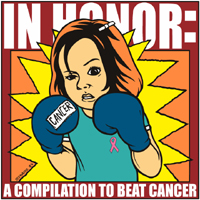 If I could find some way to express the excitement that Timmy portrayed over IM while we discussed the coming together of IN HONOR, I would run out of smiley-faced emoticons. If one ever needed more proof that life inspires music, and music inspires life, the passion and goodwill behind IN HONOR should solidify any second-guesses. Elliot conducted this interview with Timmy by email, in September 2004. – Jordan A. Baker If I could find some way to express the excitement that Timmy portrayed over IM while we discussed the coming together of IN HONOR, I would run out of smiley-faced emoticons. If one ever needed more proof that life inspires music, and music inspires life, the passion and goodwill behind IN HONOR should solidify any second-guesses. Elliot conducted this interview with Timmy by email, in September 2004. – Jordan A. Baker
Pastepunk: For those that haven’t heard of In Honor, how did the idea for it first come about? How has cancer affected you directly? Timmy: I began talking to Mark Beemer (after I found out my mother had cancer again) who heads the Syrentha Savio Endowment named after his late wife. Mark has done amazing charitable work so I thought of how I could make my own contribution to the fight against cancer. When my mom passed away on February 7, 2004 I shared the benefit compilation with Rich Egan (owner of Vagrant Records). Rich gave me the go ahead and he rest is really history. I started contacting bands, bands started contacting me, and 42 bands later the compilation is a reality and is complete. Out of the past 25 years of my life, cancer has made the biggest impact on my life more than anything. For the rest of my life I plan on doing whatever I can to make a difference. I know there’s only so much you can do but I will do everything and anything I can do. I’ve also learned the majority of people have a cancer story. From band’s emailing me to my girlfriend telling me about how her dad has cancer. I’ve learned a lot after watching my mom battle the disease and I’m glad my knowledge can help everyone from my girlfriend to a stranger on the street. Pastepunk: Has it been difficult for you, personally, to incorporate something you’re emotionally attached to with the business side of things (i.e. promoting, contracts, etc), or do you feel more of a sense of accomplishment than anything else? Timmy: I have been fortunate from working at Vagrant to have met some of the most amazing people in the world. From the Vagrant FAMILY to industry friends… they have helped make it so much easier. Everyone was touched not only by my story but what the project meant, so there were a lot of people who offered assistance that didn’t have to. It took me about 4 1/2 solid months of sleepless nights, but it all paid off. I’m doing this to help others and not benefit myself, but the sense of accomplishment is amazing. I just got my first copy of the finished compilation and I can’t stop looking at it. It’s finally “real.” Pastepunk: In greater detail, how has Vagrant supported In Honor? Timmy: Vagrant has supported In Honor by letting me do my thing, and do what I thought what right. Of course the promoting of the record is done like every other release, as well as retail, but when it came to putting the disc together, getting contracts completed, etc… It was all in my hands. It was rough and tiring at times, but I couldn’t be any happier with the outcome. I am eternally grateful to the label for their support and generosity. Pastepunk: In the past, punk and hardcore bands were known for bring more fringe issues into the consciousness of their audiences – animal cruelty, veganism, environmental action, etc. Something like cancer however is the kind of thing that effects nearly everyone in some way or another – is the kind of tide shift that occurs when the punk scene is no longer the “exclusive” community that it once was? Timmy: If what I’m doing makes the tide shift at all, I would feel honored to be a part of it. There’s the Punk Voter thing, Take Action Tour and cd, and other social causes that have been on the front lines for the past few years. I think the compilation will raise eyebrows, and show people that cancer can affect ANYONE. My friend Sean McGrath (ex-Saves The Day) died on June 11, 2004. He was young and healthy but then had to fight a long but courageous battle with intestinal cancer. I definitely agree that this may add some flavor to the huge pot of social issues and foundations involved in the music scene. Pastepunk: It seemed like SSE really paved the way towards developing an understanding about cancer in the music scene. What role do you expect In Honor to fill? Timmy: I expect In Honor to make an impact on everyone that buys a copy. Everyone that buys a copy is one more person that cares about the cause. I’m going to let In Honor pave its own way. I hope to continue to work closely with Mark Beemer and SSE as well. I would turn In Honor into a non-profit but due to the devotion that would require it’s just impossible right now. I definitely have already started thinking about In Honor Volume 2 and what foundations I would like to work with. I really would like to do something with the Lance Armstrong Foundation and possibly a few others. My expectations have already been surpassed and the cd hasn’t even been released yet so I’m really just taking it all in as things happen. Pastepunk: The two organizations In Honor supports have really helped raise cancer awareness in the music scene. What will the proceeds to the Syrentha Savio Foundation and the Sean McGrath Fund go towards? Timmy: The proceeds will be split equally between the Syrentha Savio Endowment and the Sean McGrath Fund. The Syrentha Savio Endowment (SSE) was created by the well-known photographer Mark Beemer after his wife lost her battle to breast cancer. SSE helps women fighting cancer with the high medical costs associated with it. The Sean McGrath Fund was formed to help Sean himself after it was discovered he had cancer of his intestines. Sean lost his well-fought battle on June 11, 2004. The proceeds will now go to help his family with Sean’s final expenses and will also help the Sean McGrath Fund, which became a federally recognized non-profit. The fund will help charities Sean strongly believed in. Pastepunk: What were your expectations about bands and their interest in the project before you approached them, and did that at all change afterwards? We’re you able to see a more human side to some of the bands that you worked with once you got in contact with them about In Honor’s purpose? Timmy: My expectations weren’t high at all to be honest. It seems like there is a compilation for every cause these days. This one touched the hearts of a lot of people because of the story behind it, and since a lot of people know both Sean McGrath and Mark Beemer as well. Having a foot in the door already (working at Vagrant) helped but by no means did it really make it that much easier. It was just easier to get in touch with bands and managers. Every single band has been amazing. I got some really great emails from Mike of The A.K.A.s, Jesse from Motion City Soundtrack, Adam from Jawbreaker was always super supportive, and I even got emails from bands not even on the compilation like Most Precious Blood. So yes, I was unbelievably surprised at the generosity and time bands donated to In Honor. Pastepunk: There seems to be more causes than ever before. Do you see benefit compilations as a growing influence in the modern music scene? Are they here to stay as long as they are supporting good causes, or do you think people will tire of them a few years from now? Timmy: I was always a fan of the Take Action compilations and Louis Posen of Hopeless Records. I also think Fat Mike is making quite an impact in the political world. Yes, it does seem like there are causes for everything but bands can only do so much. I’m glad the story of my mom, the story of Sean, and the story of Mark meant so much to all of the bands. The money from this compilation will go directly to those who need it and not just sit around. I truly hope that at least one person’s life is saved by the release of the compilation and the money that will be raised. Pastepunk: If someone wants to do more than buy the compilation, what are some ways to get involved in fighting cancer? Timmy: I think someone should educate themselves about cancer first. No one is immune from cancer. It’s scary but by education and taking care of yourself you can make your chances a little better. Sean’s cancer wasn’t detected at first because his doctors thought it was something more minor. He wouldn’t take that for an answer and it was eventually found out he had it in his intestines. I personally have just been more appreciative of life. There are so many great foundations out there related to cancer such as SSE, The Lance Armstrong Foundation, Boarding For Breast Cancer, and more. You can go to a benefit show, you can donate money, you can buy a “Live Strong” wristband from the Lance Armstrong, and a ton of other things. It just depends on your devotion and finding a foundation you feel strongly about. Due to Mark Beemer’s connection with music his foundation really interested me which is why I decided to work with him. The Sean McGrath Fund was to help Sean (a friend) with his battle. I am very devoted to continuing to work with both of them in the future. If what I have done inspires just one person to do something that would mean the world to me. Thanks for the interview. I appreciate your support! link: syrentha.org link: holdontoyourfriends.com link: inhonor.org link: vagrant.com link: blackballrecords.com |

